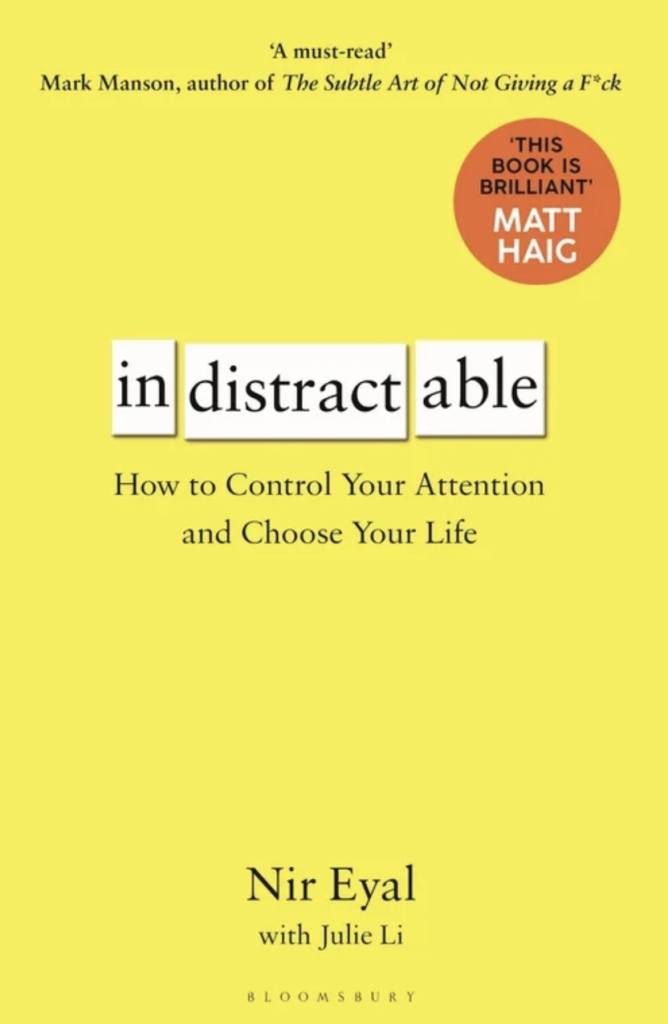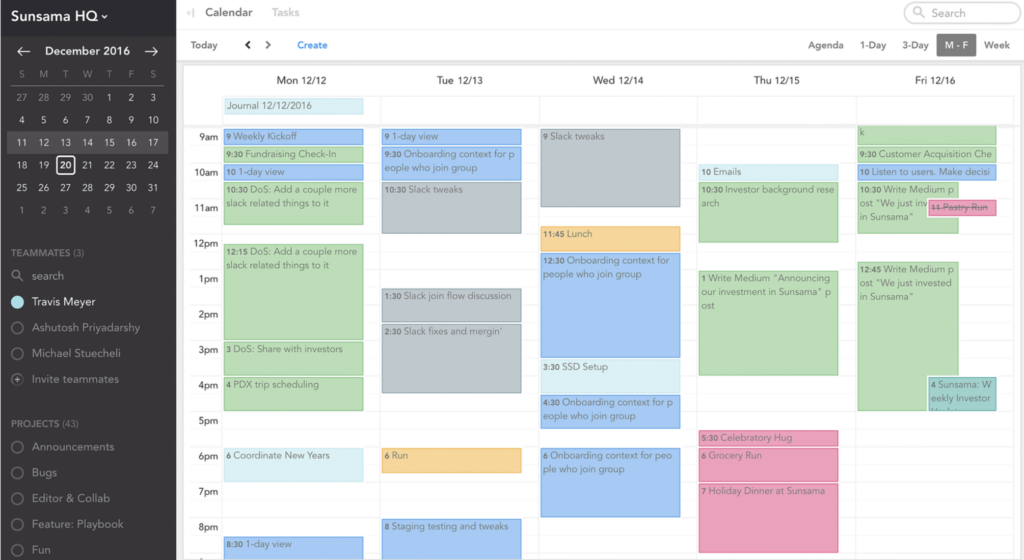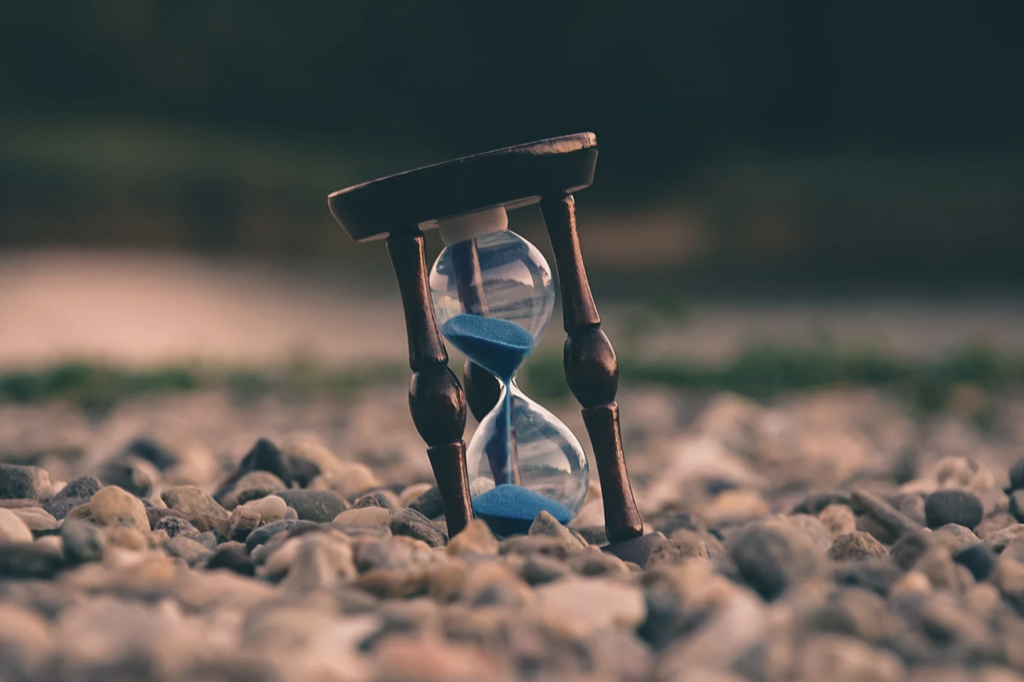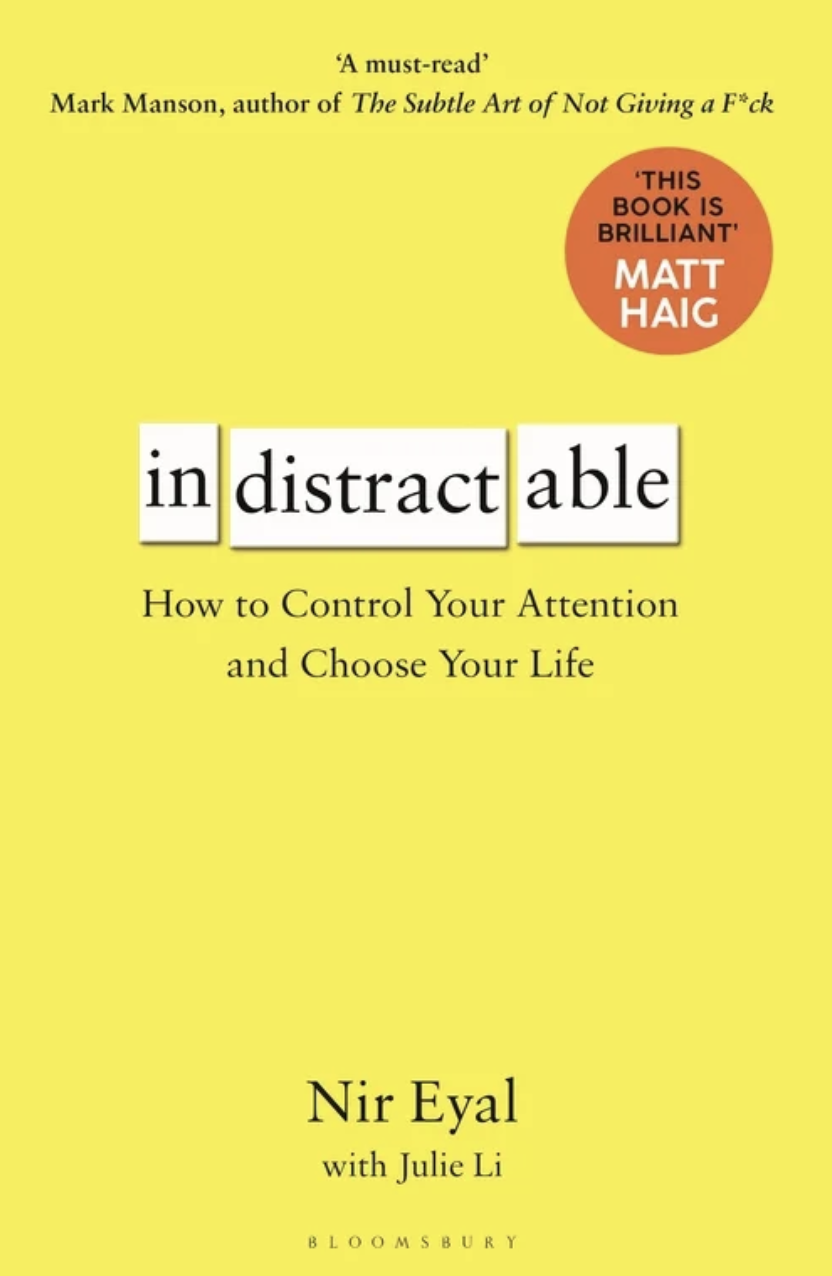In (semi-lockdown) times like these, when the lines between work and rest are increasingly blurred, I find these two things essential in ensuring that our days remain productive.
1. Creating structure
2. Dealing with distractions
The word ‘Indistractable’ comes from a book I recently read by Nir Eyal. He is also the author of another book called: Hooked: How To Build Habit-Forming Products.

Are you easily distracted? Why is this the case?
- Do you get confused how it’s already 4 pm and you wondered where all the time has gone?
- Do you feel that you have been working really hard and yet have nothing to show for it?
- Do you feel that you constantly reach out to your devices and open up your apps as a reflex action? Even when you’re in the middle of a conversation or even if you have just checked your phone 2 mins ago.

We are constantly overwhelmed with information, notifications and seemingly urgent stuff that suck away our time. It’s easy to blame technology for it.
In Nir’s first book, he shared how tech companies who own platforms such as Facebook/ Instagram/ YouTube / Tiktok use psychology tactics to make us addicted to their platforms because their business models depend on it. (Their metrics of success usually revolve around Daily Active Users and Engagement such as number of shares and likes).
This is because notifications and leveling up in games give us a dopamine boost in our brains which is addictive. Hence our brain craves for it more and more. Heck, even constantly checking our emails or messages to see if anything new comes in is also our brain craving for more dopamine boosts. (Is this just me?)
But let’s not blame technology and shift our focus to the person using it instead because distractions can come in many ways and forms. This type of distraction just so happens to be ours in this age. Hence, managing distractions should be our responsibility.
Why is this important?
This is something that I want to work on personally. I want to also share this message with you because being distracted has immense costs:
- It prevents us from being present for our family, friends, colleagues
- It costs us time that could have been spent towards more productive work like achieving our goals
- We end up having to compensate for this time / lack of attention elsewhere which is incredibly inefficient
Distraction stops us from achieving our goals whereas Traction moves us towards what we really want. Using my consulting training to simplify this like a good ol’ ‘How do we increase profits’ kind of case question: The equation here is basically = Increase Traction + Reduce Distraction
What can I do about it?
Nir outlines 4 strategies in his book and I have outlined some high level summary of each of them here:
- Master Internal Triggers -> Understand the root cause vs proximate cause of distraction
- Make Time for Traction -> Time-boxing it in your schedule
- Hack Back External Triggers -> Is this trigger serving me, or am I serving it? Turn off distractions when it’s time for some deep work
- Prevent Distraction With Pacts -> Increase accountability through effort, price or identify pacts
Personally before this book, I was already a fan of productivity strategies so I have been doing Points 2 and 3 already. Here’s my personal take on them:
Increase Traction (Creating Structure):
Time-boxing is something mentioned in many books and by many successful people so I have tried this out since last year. It’s basically about looking at your schedule (I use the Google calendar) and slotting in time slots for yourself across the 3 domains of work, relationships and me-time.
An example of how a time-boxed calendar looks like:

I personally do not like being restricted and having many constraints. However, I found that this really helped me to ensure that I set an intention of how I want the day to go instead of allowing other people or seemingly urgent things to set the agenda for me. This also ensures that I allocate time to things that matter.
Bonus Tips:
1. I categorise my time boxes according to colour so for eg. Individual work tasks in green, Team meetings in orange, Personal stuff in purple etc so it’s easier to see at a glance if I am allocating too little or too much time in a particular domain
2. Even before this WFH period, I discussed with my manager to allow me to work from home once a week so that I can allocate time for deep work (ability to focus without distraction on a cognitively demanding task) from home.
I even block this out in my calendar so people can’t schedule meetings over it. This is part of establishing boundaries which is also important to keep sane. I learnt that I do take some time to get in the zone. So even if I only have 1-2 meetings scheduled that day, it breaks my train of thought and this lost time can add up to a lot over a period.
3. I do not plan my schedule too perfectly because a) shit happens. Meetings overrun, stuff crop up, I take longer than expected on a task. And b) like I said, I do not like being restricted.
So if you’re like me, what you can do is to put in place broad buckets of what you want to achieve and slot it in your calendar. I get to this by asking myself: What is the 1-2 things that will move the needle for me today?
Reduce Distraction (Hack Back External Triggers)
Some examples of external triggers and distractions are as follows. I outline in green how I deal with them:
- Work Interruptions: Schedule WFH once a week for some deep work, Change my status to Do Not Disturb on Slack, Sit at a different location and put on my headphones
- Email: Off push notifications and schedule a time to check it
- Group Chat: Turn on the Do Not Disturb function on my phone, schedule time to reply chats
- Meetings: Ask if the meeting is truly necessary and make sure there is an agenda/objective to it
- Phone notifications: Turn on the Do Not Disturb function on my phone
- Feeds: Schedule time to (mindlessly) browse feeds
- Online Articles: Download the Pocket app which allows you to save the articles and read it at another time

It’s not perfect and I still get distracted. But a good first step is knowing that you have these tips at your disposal when you find yourself spending too much time on things that you are just using as a distraction from what’s truly important.
I have not done Points 1 (Mastering Internal Triggers) and 4 (Preventing Distractions using Pacts) yet but they are definitely things that I will think about if the other 2 strategies are not sufficient in curbing distractions for me.
Conclusion
Seneca, the Roman Stoic philosopher, wrote,
“People are frugal in guarding their personal property; but as soon as it comes to squandering time, they are most wasteful of the one thing in which it is right to be stingy.”

Though this pandemic has affected us in many ways, we can re-frame our perspective to something more positive. We can view it as an opportunity to reset, refresh and re-think about where we allocate our time to and why. After all, how we spend our days is invariably how we spend our lives.
I hope this has been helpful – leave me a note to let me know if it works or if you have more tips to share 🙂
If you want to go more in-depth, here are some of my recommended reads on Productivity.
1) Deep Work by Cal Newport
2) Willpower Doesn’t Work by Benjamin Hardy
3) The One Thing by Gary Keller and Jay Papasan
4) It Doesn’t Have To Be Crazy At Work by David Heinemeier Hansson and Jason Fried
5) Work Smarter, Live Better by Cyril Peupion
6) Do Less, Get More: How to Work Smart and Live Life Your Way by Shaa Wasmund
If you have some good ones to share as well, please comment below!
On a side note, I am thinking about doing some coaching and/or videos around similar topics explored on this site. If this is of your interest to you, do let me know here. Thank you!!
